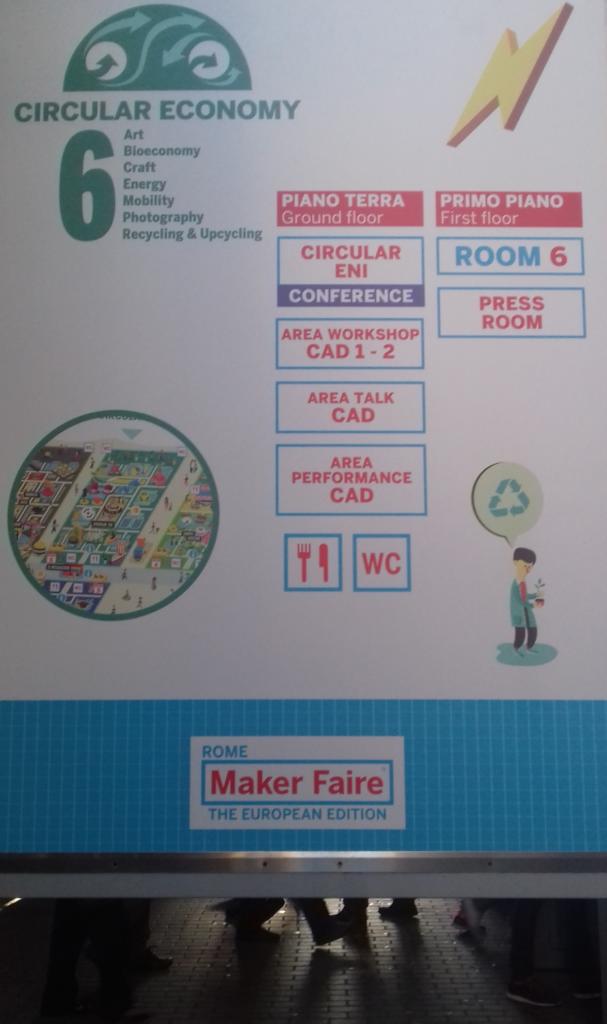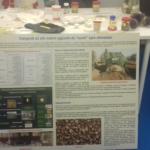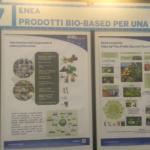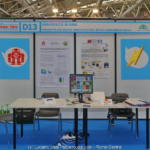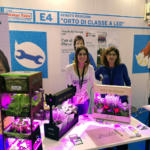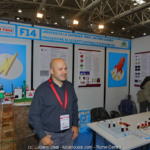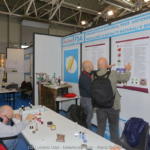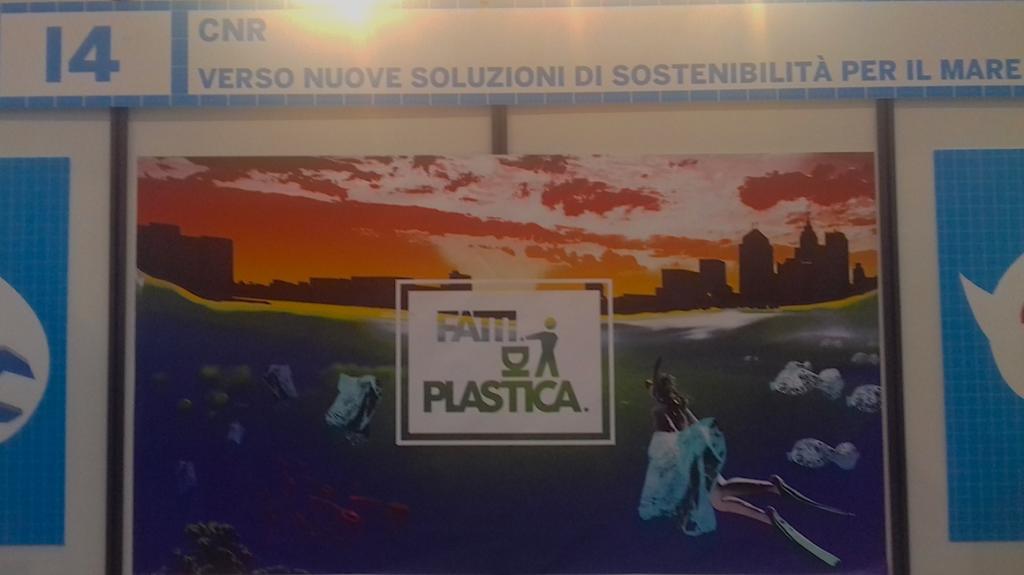 The inventiveness and ingenuity at the service of man’s health and well-being, but also of the environment in which he lives, safeguarding and eco-sustainability with projects and research focused on the circular economy, proposed by Universities, research and schools from all over Italy and other countries.
The inventiveness and ingenuity at the service of man’s health and well-being, but also of the environment in which he lives, safeguarding and eco-sustainability with projects and research focused on the circular economy, proposed by Universities, research and schools from all over Italy and other countries.
From waste to resources, this is the principle on which today research, training and recovery projects of natural substances, antioxidants and biopolymers are based, to improve the environmental impact and pollution of industrial processes, while at the same time recovering and give a ‘second life’ in food, nutraceutical, cosmetic and energy sectors to some waste products. Some of the projects and perspectives present at this 2018 edition of the Maker Faire in the sign of the circular economy.
FOOD OF THE FUTURE
Food and Technology: meet targeted training
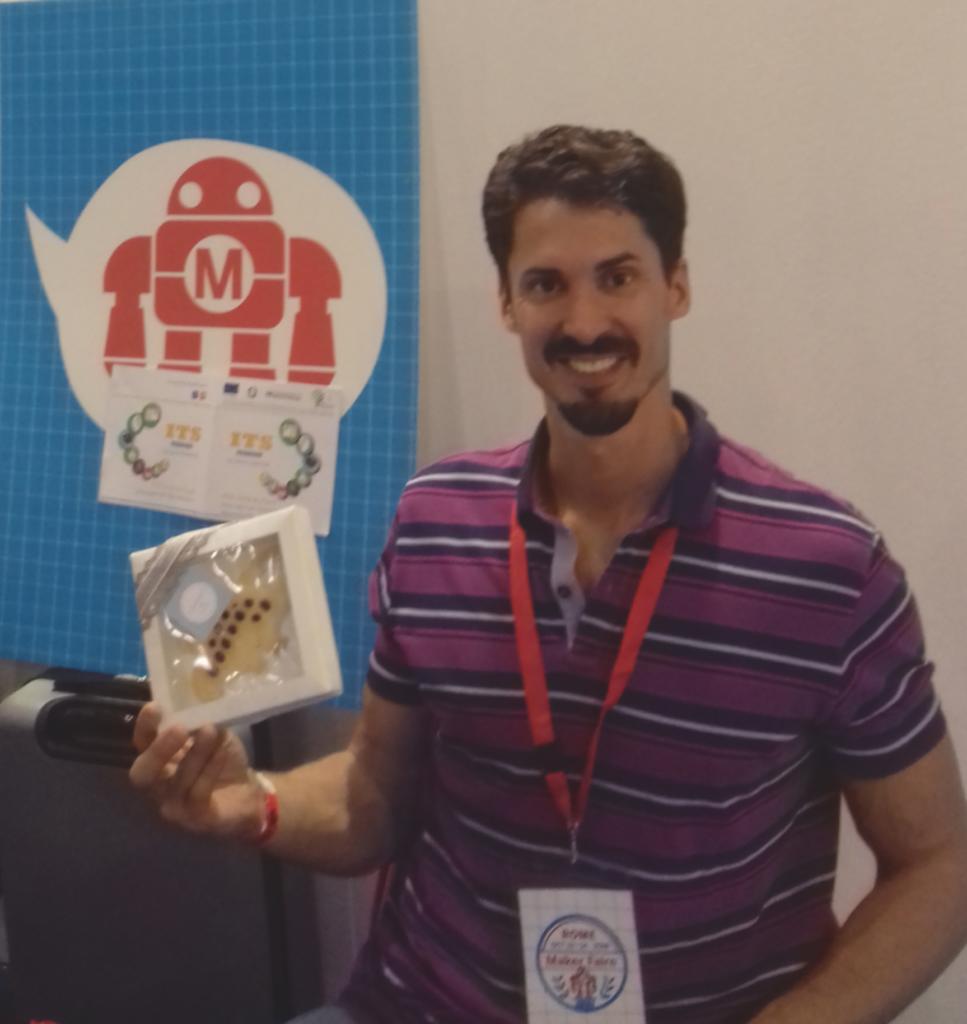
It arrive from Emilia Romagna with Francesco Bianchi – General Coordinator of the ITS Foundation – Tech and Food, a training body recognized by the MIUR that coordinates 90 foundations throughout Italy, and has been established for over ten years.
Each territory has its own manufacturing vocation “and ITS – Tech and Food base in Emilia Romagna (Parma, Modena, Reggio Emilia) works to offer companies in the agro-industrial sector, but also in tourism and mechanics, training for human resources that will go to work in the individual sectors. The goal is to be a center of excellence in training to establish direct contact with companies and prepare students along the entire supply chain: from the engineering of production processes to marketing combined with marketing and certification. During the course of studies we make absolutely new food projects: starting from the initial research, up to the sales plan for the final distribution, with attention to packaging and labeling, for example.
At the Maker Faire they present the results of the different routes, undertaken in the agri-food sector, from the milk supply chain to that of the tomato. We talk about food of the future, eco-sustainable, with the use of substances recovered from industrial waste and reused. Cookies, natural drinks (Smoothies) and pesto are the products presented. If the pests are made with oil obtained from squeezing tomato seeds and celery salts, the novelty is the cookie “cooket” made with 3D printer and 9% insect flour with the ability to customize the recipe depending on food intolerances or social-religious norms.
A product that combines environmental and economic sustainability, therefore, but also the result of training courses that want to encourage skills that can be spent in companies for innovative and eco-sustainable production processes.
THE VALORISATION OF THE WASTE
Bio-products: raw materials and the wealth of a territory
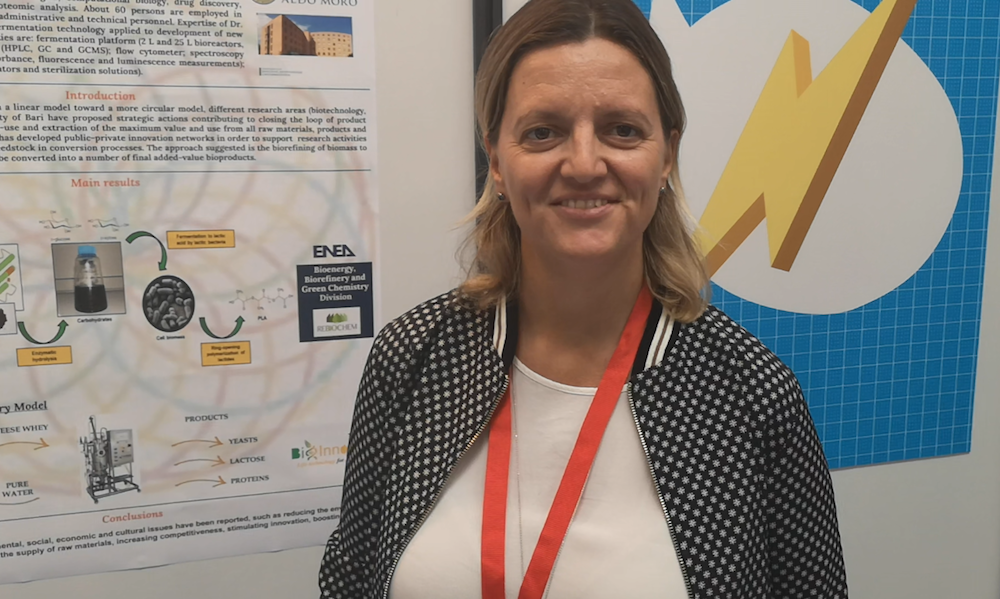
Isabella Pisano researcher in biotechnology at the University of Bari presents from Puglia some examples of circular economy applied to industrial waste deriving from agro-food and implemented on local products.
We are at the fair in Rome to tell what Uniba does in the circular economy, starting from the Apulian products, and not only. Our research aims at enhancing waste, and turning waste into a real resource. What we create are biorefinery models. For example, starting from whey, a product for which the dairies pay to dispose, we have created a model of biorefinery to try to enhance what is considered a waste that can be transformed into a resource.
In fact, whey proteins can be recovered from whey, which can be used in cosmetics and nutraceuticals. But it is above all possible to recover lactose: a sugar that can be transformed by fermentation processes into different products, such as baking yeast, or which can be further transformed into lactic acid in fermentation and then polymerized to obtain bioplastics.
There are several projects that the University of Bari has started and is pursuing also with external collaborations. For the past two years, with the BioInnoTech spin-off, a natural yeast for bread making has been obtained from the initial whey wastes by milk; while in collaboration the ENEA – National Agency for New Technologies, Energy and Sustainable Economic Development, is developing a European project to obtain lactic acid from cardoons, as a component for bioplastics. The milk thistle is a very common wild grass in the Mediterranean area, adopting the same approach of the characterization of the pre-treatment are released of sugars from which it will be possible to obtain chemical in PLA (Polloactic Acid), and therefore biodegradable plastics.
With the Bioenutra start-up they valorise the waste of the olive oil recovering the polyphenols: those natural antioxidant substances not naturally produced by man, but if acquired they bring innumerable benefits: they protect against the damages caused by free radicals, for example they can reduce the effects of cellular aging and inflammatory processes, especially those that underlie cardiovascular disease and cancer. In addition, they extract polyphenols from bamboo shoots with a micro-wave method.
THE VALORISATION OF THE WASTE
Natural antioxidants: elixirs from different sources
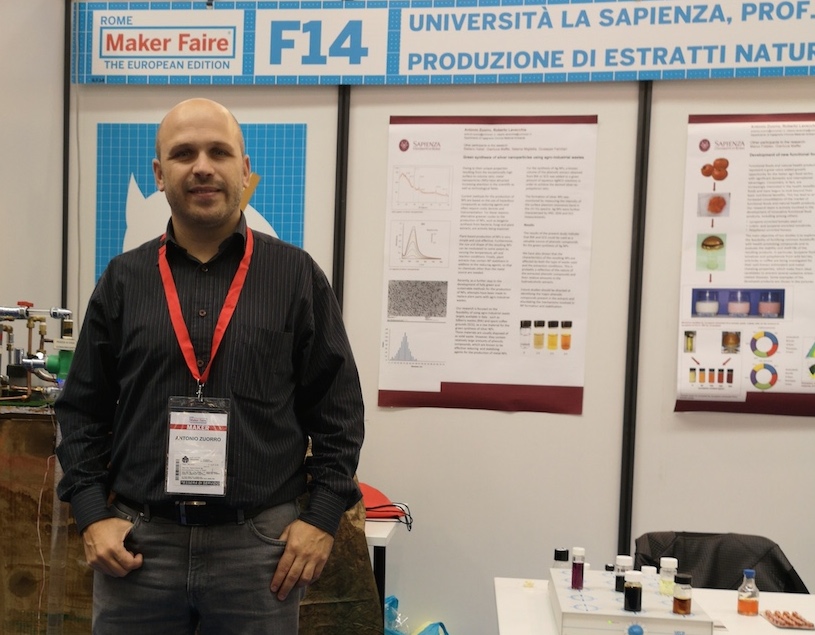
Antonio Zuorro from La Sapienza University, DICMA Department of Chemical Engineering Materials Environment illustrates how biochemical engineering is in everyday life: starting from the antioxidant substances that we could recover from the agro-industrial waste of the production of different foods from tomato to blueberry , from coffee to insects.
The DICMA research group of the University La Sapienza has been working for some time on the valorisation of agro-industrial waste in obtaining high value-added products: the result of the treatment process of this waste allows to obtain a product that has a market value , commercial, utility and functionality, greater than the product that originated it. Some typical cases are, for example, the treatment of processing residues of the tomato industry.
When we buy the classic tomato sauce we do not find any peels or seeds. These elements, which are an integral part of the vegetable and are discarded, can be the starting material for obtaining lycopene, a very strong and very powerful natural antioxidant, and of tomato seed oil “.
And recombined, they allow to obtain a product with an antioxidant activity and in some cases a rather high anti-carcinogenic activity. Similar systems are those that are applied to coffee-based beverage production residues, ie exhausted coffee, and to the production residues of red fruit jams and juices.
The green processes that have been developed allow us to obtain extracts rich in natural antioxidants, which otherwise would be lost with the waste of raw materials. These substances are, for example: the polyphenols extracted from the wasted coffè, the anthocyanins from the skins of the blueberry fruits, and the lycopene from the skins of the tomato. The recovery of these substances allows them to be used in the cosmetic and nutraceutical fields, in the first place, as well as reducing the pollution of the water and the soil produced by these same waste. Or develop bio-disiel from microalgae.
But it is possible to get antioxidants even from some insects, and to get some “purified essence”. And this is one of the news brought to this edition of the Maker Faire: the extraction of a purified concentrate that is “produced” directly by some insects that has an antioxidant power ten times higher than any plant-based extract and high anti-inflammatory properties
Together with the prof. Lavecchia we asked ourselves if there was an alternative source to plants, so we have identified a particular type of insect from which it is possible to obtain an extract with a high antioxidant power. Unfortunately, one of the complications of natural antioxidants is the speed with which they “degrade”, so after a year and a half of research we have managed to develop a specific process that allows us to extract 100% antioxidant functions “.
Processes for the recovery of energy content from municipal solid waste, agro-industrial residues and biological sludge from the treatment of waste water, for the production of biomethane, and biopolymers, biodegradable plastics, without the use of hydrocarbons.
THE VALORISATION OF THE WASTE
Hydrogen … which could come from waste
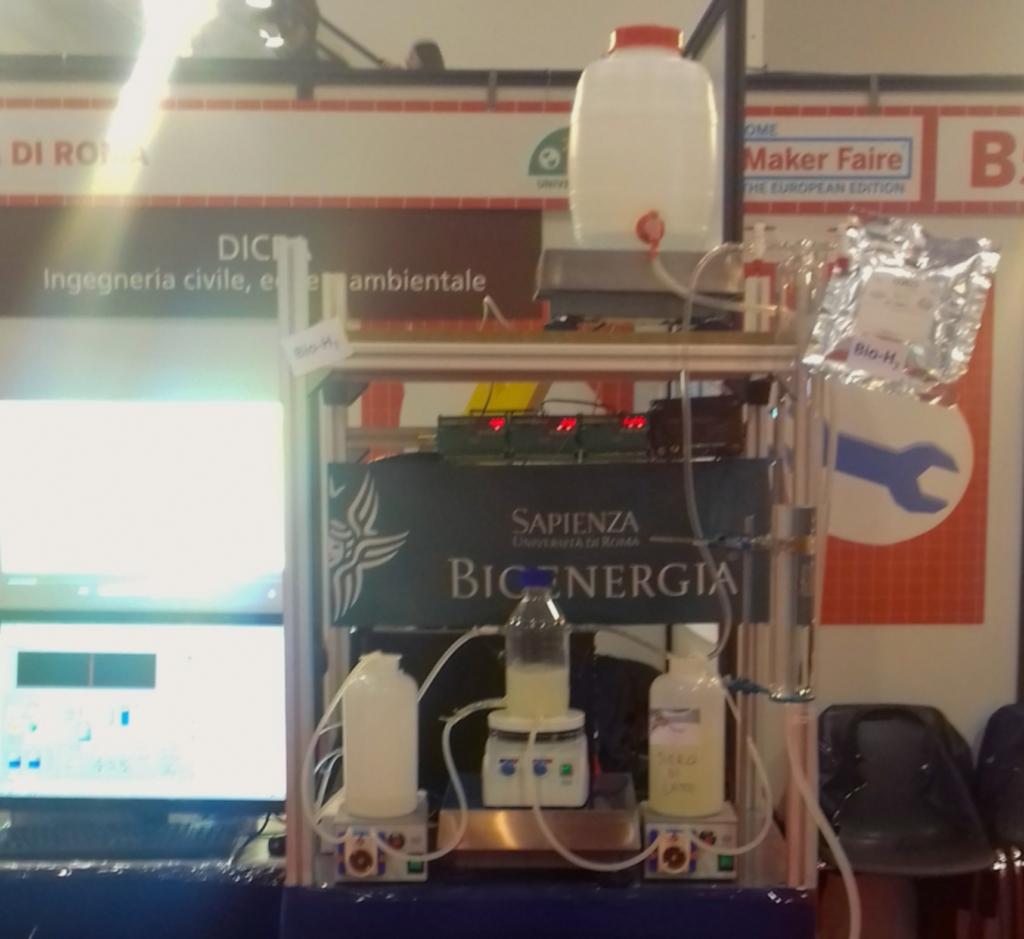
And again from the University La Sapienza with Raffaella Pomi – associate professor DICEA Environmental and Health Engineering La Sapienza, Rome – atogether with Prof. Alessandra Polettini, Dr. Ing. Andreina Rossi and Prof. Maria Rosaria Bon – deals with waste from wastewater and contaminated soils and at the fair presents a prototype that starting from agro-industrial waste such as milk-whey, for example, produces bio-hydrogen that can be used as an energy carrier through a biochemical process. We talk about continuous reactors for the fermentative production of h2 from biodegradable organic waste:
The interest in the possibility of recovering hydrogen with biological processes from biodegradable substrates is linked to the fact that hydrogen is a “clean” energy vector which, after combustion, releases only nitrogen oxides and water and negligible quantities; moreover the energy content per unit of mass is 2.75 times higher than traditional fuels. Hydrogen can be used for energy production both in internal combustion engines and in fuel cells, in both cases with very high returns “.
Hydrogen is a fuel that offers a high energy content (per unit of volume compared to other fuels) and is carbon free, as it does not emit CO2 into the environment. A waste management approach based on the concept of Circular Economy, which through “the use of anaerobic digestion (DA) has the merit of including a phase of energy and material recovery in the management of biodegradable waste”.
Recycling and circular economy have been one of the main themes of this edition because it is essential to move towards the future without focusing on new practices and projects. A shift in attention, respecting the ecosystem, which turns the gaze to new energy sources and new models of nutrient development.

Parole, lingua e linguaggio, arte e le nuove tecnologie sono quel filo rosso con il quale mi diverto a tessere le mie giornate. Innovazione e sviluppo di nuovi orizzonti gli spunti che mi fa piacere incontrare. Giornalista, editor, copy writer e content media. Dopo la laurea in Filosofia del Linguaggio e della Mente a Napoli, mi trasferisco a Roma dove mi specializzo in comunicazione per il web e i nuovi media e per diversi anni sono caporedattore del mensile “Next Exit, creatività e lavoro” approfondendo temi di economia della cultura. Ho curato la pubblicazione di diversi progetti editoriali, tra cui Young Blood, annuario dei giovani artisti italiani, e RomaCreativa, per fare una mappatura dei creativi italiani nel mondo e nella capitale.

